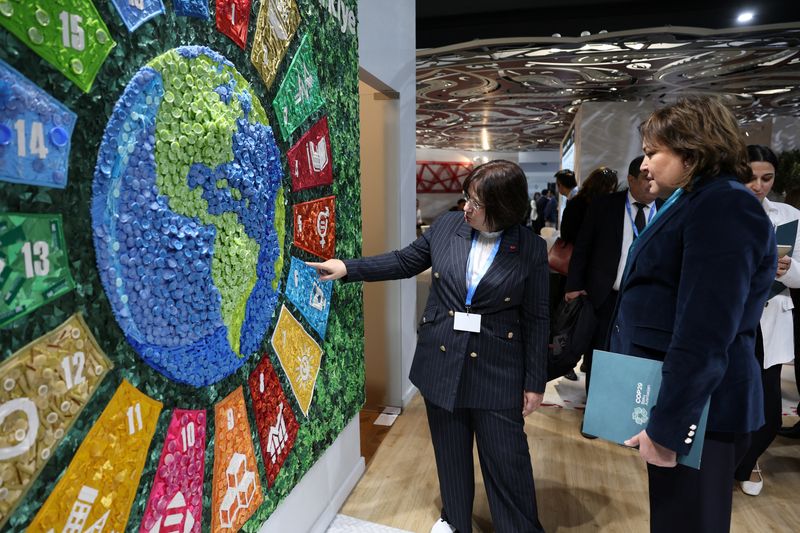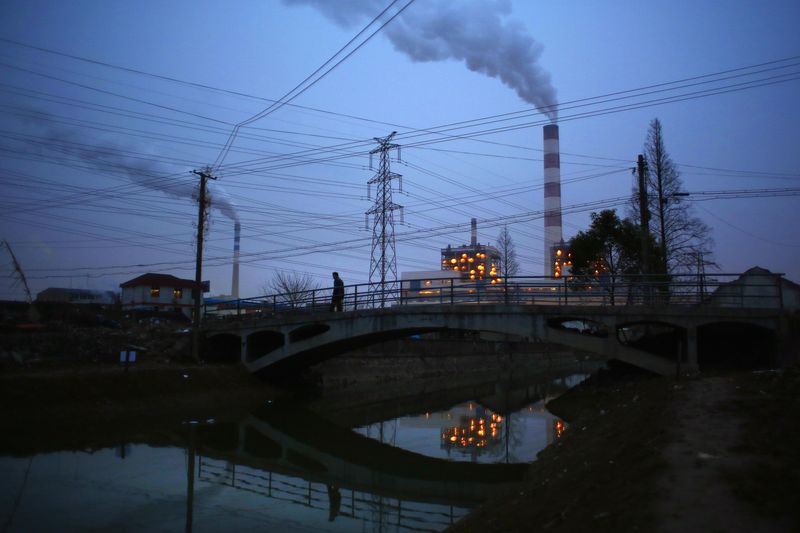BAKU (Reuters) – Marathon COP29 climate talks will enter their final phase on Wednesday, when Azerbaijani host countries will publish an update on negotiations as far as the summit aims to reach a new goal on issues such as climate finance.
The talks, which began on November 11, end at 2pm GMT on Friday, but COP summits have a long history.
Below you will find an overview of the known bottlenecks and what happens next:
DRAFT TEXTS
Officials spent the first week trying to reach agreement on a range of different issues, including finance, carbon markets, the future of fossil fuels and efforts to mitigate the rise in global temperatures.
Now the outstanding points have been transferred to ministers so that they can use their political influence to try to reach an agreement.
The next steps are about trying to convert draft texts, which contain a huge range of wording options, into a final document that can be adopted by consensus at the end of the summit.
Draft texts will be published periodically by the Azerbaijani Presidency as they reach an acceptable agreement.
CLIMATE FINANCING GOAL
The primary goal of COP29 is to agree on a new target for the amount of money to be provided to developing countries to help them adapt to climate-induced weather disasters and transition to cleaner energy systems.
An earlier target of $100 billion per year expires in 2025. According to experts, the new target should be $1 trillion per year by the end of this decade.
The focus in the negotiating rooms was on defining the structure of a new target, including what counts as climate finance and who should pay. Only once agreement has been reached will the parties be expected to discuss the scope of the target.
Issues to be resolved include whether countries such as China should be counted among the richer core donors, and the extent to which countries should provide financing in the form of grants or loans.
A text is planned for publication on Wednesday evening.
FOSSIL FUELS
Countries have so far struggled to agree on the right way to follow up on an agreement from last year’s summit on the fossil fuel transition.
European states want this commitment to be included in any deal in Baku, to reinforce the importance of continuing strong action. Others, including the Arab Group of States, argue that this is not necessary.
If past COPs are anything to go by, when a deal text is published, delegates will be looking for the term “fossil fuels” to see if there is any sign of a backslide.
CARBON MARKETS
The talks in Baku started with an early agreement on some quality standards that would govern a global market for carbon credits, but much agreement remains to be reached, including on transaction tracking and disclosure rules.
If fully agreed, market observers expect a U.N.-backed global market could finance billions of dollars in projects that reduce greenhouse gas emissions from projects such as reforestation.
Research into the details is intense amid concerns that without watertight regulation, carbon credits may not deliver the benefits they claim.
LAST HOURS
Agents rarely finish on time. COP28 in Dubai closed almost a full day after the original deadline; COP27 in Egypt has been exceeded by approximately 36 hours.

In the final hours, delegations consult intensively privately with the presidency on the proposed deal, often through the night, in search of something that can be adopted by consensus.
Once finalized, each country is called into the main hall to begin an hours-long process of formal approval.


